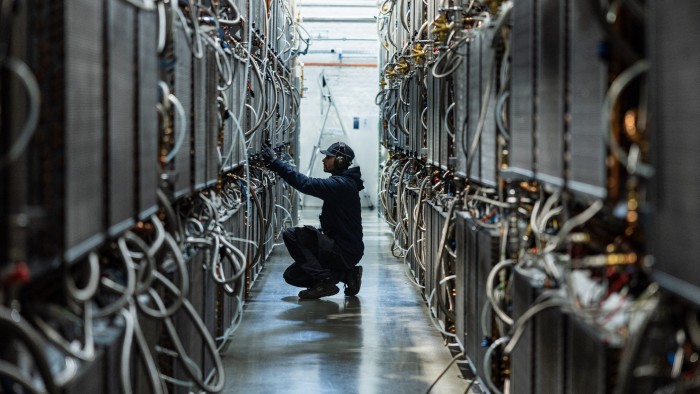Unlock the Editor’s Digest for free
Roula Khalaf, Editor of the FT, selects her favourite stories in this weekly newsletter.
A few months ago, it wasn’t uncommon to hear company executives compare artificial intelligence to a super-efficient intern: fast and keen, but you will want to check their work before it goes to the client.
This week’s crop of earnings from Silicon Valley shows this imaginary intern is ready to take on a more substantial corporate role. Meta Platforms, Microsoft and Google parent Alphabet, which recently reported, each beat analysts’ profit estimates, as copious AI investment turns into actual revenue and real-world results.
Take Meta, where AI is a product and an employee. Founder Mark Zuckerberg this week reiterated the social network’s AI will be able to code as well as a mid-range software engineer some time this year. He is also using homegrown models to make ads on Facebook and other apps more lucrative, as users click on them more often. AI is also coaxing Instagram users to stick about 6 per cent longer than they did a year ago.
Microsoft, meanwhile, makes money when companies spend on AI products, its own and others’, hosted in its data centres. Revenue for Azure, its cloud business, grew 33 per cent year on year, and AI services made up half of that increase. Amazon’s AI offering, while small for a company with a $638bn top line, is in the billions of dollars, although it doesn’t say how many, and growing in triple digits.
AI is, unsurprisingly, getting more sophisticated, given the money thrown at it by creators, and a clearer sense of what companies will pay for. Palmyra X5, a new model from Writer, whose AI is used by Goldman Sachs and Salesforce, can process problems equivalent to 1,500 pages of text — roughly Isaac Asimov’s I, Robot six times over — and more cheaply, it says, than rival OpenAI’s GPT4.1.
These technologies are also now doing the thing that was previously talked about only obliquely: replacing people. Language app Duolingo is going to stop using contractors for jobs that AI can do. Ecommerce company Shopify won’t hire if AI can do the human’s job — something boss Tobias Lütke mysteriously thinks will spur ‘fun discussions’.
Consultancy Bain & Company’s survey found 95 per cent of companies use generative AI, and most say their business is measurably better off. The average company budgeted $10mn for AI spend by the end of last year, twice what it had pencilled in around the beginning of 2024.
Tech giants are using these gains to justify continued investment in the AI itself, which seems to worry investors less than it did a few months ago. Meta raised its estimate of capital expenditure for the year, which could now hit $72bn.
It’s not clear this spending will create sufficient returns in the long run. But as any smart intern knows, the way to succeed tomorrow is to get into the boss’s good graces today. AI has taken that lesson to heart.
Source link









